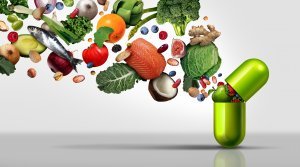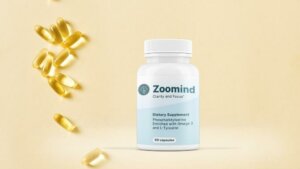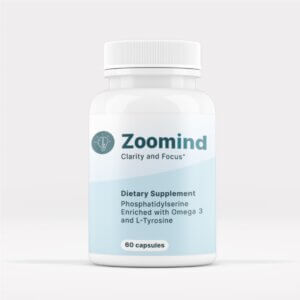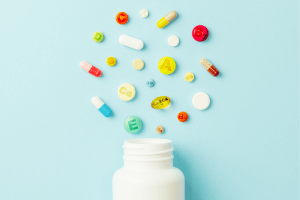Introduction to Dietary Supplements

If you want to know if supplements can help, we’re here to try and help answer the question.
Many people take food supplements with the belief that they maintain health or prevent disease; many people use supplements to treat specific conditions that have already developed. We look at popular supplements in both categories, ranging from preventative supplements to health-boosting ones.
The topic of supplements covers everything from vitamins and minerals, to fiber and herbal remedies. The use of some of them is backed by solid research, others are simply folk remedies or proprietary cures. According to the FDA, dietary supplements include such ingredients as vitamins, minerals, herbs, amino acids, and enzymes. They are marketed in tablets, capsules, soft gels, gel caps, powders, and liquids.
If your diet lacks specific vitamins or minerals, making up for any deficiency with a supplement can benefit your health. Remember, though, that taking supplements can also involve health risks.
Rule number one – be careful!
Educate yourself about the products and use common sense when taking them. It is even more true if you are pregnant or taking a medicine that may be affected by supplements.
Rule number two – it’s not the same as taking prescribed medication!
The U.S. Food and Drug Administration (FDA) is not authorized to review the safety and effectiveness of dietary supplement products being marketed.
Unlike drugs, supplements are not permitted to be marketed to treat, diagnose, prevent, or cure diseases. That means supplements should not be making disease claims. “Lowers cholesterol” or “treats heart disease” are claims that can’t be legitimately made for dietary supplements.
Rule number three – get professional guidance!
Advice from the FDA is for you to get factual information before deciding whether to take a supplement or talk to your healthcare provider. They can help you achieve a balance between the foods and nutrients you personally need.
If you want to know if supplements can help, we are here to help answer this good question.
What do we know?
You may have heard of them, used them and even recommended them to friends or family. Some supplements are well understood and approved, and others require further research. Read more here to learn important information about supplements for you and your family.
What are the Benefits of Supplements?

Some supplements can ensure that you get enough of the essential substances that your body needs to function. The purpose of some others is to help reduce the risk of disease. But supplements cannot replace all the foods needed for a healthy diet, so be sure to eat a full range of other foods as well.
Are there any risks in taking supplements?
Some supplements contain active ingredients that have distinct metabolic effects on the body. It could make them unsafe in some situations and damage your health. Some of the following actions could lead to harmful and even life-threatening outcomes.
- Combining supplements
- Using supplements with prescribed medicines
- Substituting supplements for prescribed treatments
- Taking dangerous levels of certain supplements, such as vitamins A and D, or iron
Especially important is to inform your healthcare provider and your pharmacist about any supplements you are taking before surgery.
Which Supplements Should I Take for My Health?
Vitamin D
It regulates the levels of phosphate and calcium – needed to keep bones, teeth and muscles healthy.
Vitamin D is needed for these essential bodily functions:
- Absorption of calcium from the intestines, necessary for healthy bone
- reduce risks of some neuromuscular ailments, like balance problems
- Prevention of rickets in children
- Reducing the risk of some malignancies, like prostate cancer.
Currently, guidelines call for 600 IU (international units) per day up to 70 years of age boosted by 100 IU a day after. Some experts recommend 800-1,000 IU per day for most adults. Up to 4,000 IU can be considered safe, but above that, it can be toxic.
Vitamin D is produced in the skin in reaction to light. In recent times, work has shifted indoors, and people are using sunscreens to reduce the risk of skin cancer and wrinkles. As a result, more than two-thirds of Americans lack enough bright light to manufacture enough of the vitamin just from sunshine. Aged people and those with chronic illnesses are particularly at risk.
It isn’t easy to get vitamin D from dietary intake. The only viable raw sources are oily fish and fortified dairy products.
Both of the two forms, known as D3 and D2, are effective, but D3 is more usually taken. Vitamin D is best taken with food that has some fat content. In order to confirm that you need this supplement, get a blood test. Levels below 30 ng per ml are indicating some deficiency.
Omega-3 Fatty Acids
Fish oil, which contains omega-3 fatty acids, is an essential supplement for just about everyone. It can help with a wide range, from cardiovascular health and brain functioning to arthritis and inflammation.
Nutritionists have been saying that we should be eating some particular types of fish at least twice a week for many years. Researchers now have identified precisely what makes the oil in these types of cold-water fish the healthy choice – it contains optimum levels of the correct type of omega-3-rich sources.
We should be trying to eat coldwater fatty fish like salmon, sardines, herring, anchovies, trout and mackerel at least twice a week. But the fact is that people aren’t eating enough fish, so omega-3 supplements have become globally accepted.
For children with ADHD, dietary supplements can reduce symptoms without the need for prescription psychostimulants. The known action of prescription medications for ADHD is to boost the supply of dopamine, which acts directly on the central nervous system. One way to get the required effect without stimulant prescription drugs is through natural supplements for ADHD – supplements containing phosphatidylserine and enriched with omega-3 docosahexaenoic acid (DHA). A supplement works by providing a source of essential chemical compounds that the body needs for a wide variety of functions, one of which is to increase dopamine levels.
These boost the body’s supply of dopamine, which is required in neurotransmission. Many prescription medicines for ADHD also try to target dopamine production, which is essential for the brain’s functions of cognition, memory and focus. The activity of the compound has been confirmed as improving a variety of memory indices.
Some natural dietary supplements for ADHD are specially formulated to supply lipid nutrients aimed at relieving symptoms of ADHD. You do not need a prescription to purchase these over-the-counter supplements. They act as a source of the two most important types of omega-3 fatty acids – eicosapentaenoic acid (EPA) and docosahexaenoic acid (DHA) containing phosphatidylserine-omega-3.
Calcium
It is required to build and keep strong bones and teeth. The body also needs calcium for muscles and nerves. It is used to carry messages between the brain and body parts.
Calcium and Vitamin D work in consort, but building and maintaining bones needs adequate calcium intake even with optimum vitamin D levels. A diet with abundant dairy products can fit the bill, but most grown-ups don’t consume enough calcium-rich foods.
The RDA (recommended dietary allowance) for men is 1000 mg up to age 70 and 1200 mg afterward.
Women, who have a high risk of osteoporosis, are routinely recommended to take calcium supplements by their physicians. However, men should be more cautious by limiting intake to the RDA because there is some evidence that excessive levels may risk the development of prostate cancer and heart disease.
Antioxidants
Antioxidants are believed to protect cells against free radicals, which are molecules produced when metabolizing food or exposed to radiation and tobacco smoke.
The most frequently used antioxidants are vitamins A, C, E and beta carotene. They became widely consumed during the 1980s, but there was no demonstrated benefit against heart disease, cancer, or other illnesses despite many clinical trials. What’s more, moderately high doses of them have been linked to some potentially serious problems. Vitamin A increases the risk of bone fractures in older women and prostate cancer in men. Beta carotene increases the risks of lung cancer in smokers. Vitamin E may increase the risk of prostate cancer and has been linked to increased respiratory infections, heart failure, and overall mortality.
People who suffer moderate or advanced age-related macular degeneration (AMD) can benefit from special antioxidant supplements containing zinc.
B Vitamins
We are referring specifically to folic acid (B9 ), pyridoxine (B6), and cobalamin (B12). The target is an amino acid that’s present in everyone’s blood. Elevated homocysteine levels are linked to an increased risk of heart disease, and research showed that these three B vitamins could reduce homocysteine levels.
In recent clinical trials, it was discovered that people who have a genetic metabolic condition that elevates homocysteine levels could benefit from B vitamins.
B12 keeps nerve and blood cells healthy and helps make DNA. It is needed to prevent megaloblastic anemia. B12 is found only in meats, so strict vegetarians may need supplements. Many older people don’t make sufficient natural acid in the gut, which is needed to release B12 from meats.
B12 is usually added to fortified grain products and other foods. This synthetic B12 can be more easily absorbed without dependence on stomach acid.
B9 is essential for the production of red blood cells and the production and repair of DNA. It is present in leafy greens, many fruits, beans and legumes, and meats. However, most people have been getting the required dosage only since U.S. and Canadian governments mandated fortifying all grain products with folic acids. B9 deficiencies during pregnancy increase the risk of serious congenital disabilities.
Fiber and Probiotics
Fiber supplements are a popular remedy for constipation. Some research shows that a high fiber intake has several other potential benefits for people suffering from obesity, heart disease, varicose veins, hernias, and diverticulitis.
The RDA for people younger than 50 is 38 grams of fiber a day for men and 25 g for women. It reduces to 30 g per day for older men and 21 grams a day for women. Many people need supplements to meet these targets.
Probiotics are generally recommended for digestive irregularity, sugar cravings, slow metabolism or skin issues like eczema, psoriasis, and itchy rashes.
Iron and Zinc
Iron is an essential component for many metabolic processes relating to the body’s proteins and enzymes. Because it is essential in the transportation of oxygen to blood cells, insufficient iron results in anemia. Iron deficiency causes fatigue and reduced immunity. Vegetarians aren’t usually able to get sufficient iron without a supplement.
Zinc aids the immune system and is necessary for body growth in the womb and through childhood. However, upon adulthood, it’s not necessary to supplement daily except for its effect on some symptoms of colds and flu.
Melatonin
Melatonin is a hormone produced in the pineal gland that regulates circadian rhythm that can help balance the wake-sleep cycle. It’s used in low doses for insomnia.
Vitamin C
After Nobel laureate Linus Pauling wrote that vitamin C was a sure-fire way of defeating influenza, it became a trendy and common supplement. It acts as an antioxidant, and it’s excreted very rapidly. This more-or-less pulled the plug on the popular Pauling treatment of massive vitamin C intake when the common cold was coming on.
Curcumin/Turmeric
Turmeric is most frequently used as a food flavoring and coloring agent. Medicinally, it is mainly used for relieving pain and inflammation. It is also used for osteoarthritis, depression, hay fever, some forms of liver disease, high cholesterol, and itchy skin conditions. There’s no scientific evidence supporting the widespread uses for heartburn, memory skills, IBD/Crohns disease or relieving stress.
Coenzyme Q10
Also known as CoQ10, it’s not well known, but it’s essential for people with high cholesterol. Mitochondrial structures use CoQ10 in cells in energy production. Prescribed statins lower cholesterol but block the formation of CoQ10 in the body. It leads to muscle cramps, memory impairment and other complications.
Meal replacement
Meal replacement using powders and shakes is a whole different subject, not fitting this article’s purpose. Maybe sometime in the future, we’ll turn our focus to that.
Which dietary supplements are the most popular?
Vitamin D has been the most popular supplement for many years, followed by magnesium, then omega-3 fish oil.
Following is a table of the supplements most frequently purchased in the USA:
| % of buyers | |
| Vitamin D | 66.0 |
| Magnesium | 53.5 |
| Omega-3 (EPA/DHA) | 52.5 |
| COQ10 | 45.7 |
| Multivitamins | 42.4 |
| Probiotic | 38.9 |
| Curcumin/Turmeric | 34.8 |
| Vitamin C {Including Rose Hips) | 34.5 |
| B-Complex | 31.2 |
What are some of the other popular dietary supplements?
- Echinacea
- Ginseng
- Glucosamine
- Chondroitin Sulphate
- Garlic
- Saw Palmetto
- Ginkgo
- Green Tea
Who is responsible for the safety and quality of dietary supplements?
In the USA, manufacturers and distributors of dietary supplements are responsible for ensuring that products are safe before they are sold.
According to current regulations published by the U.S. Food and Drug Administration, manufacturers must produce dietary supplements in a quality manner and ensure that they do not contain contaminants or impurities, and are accurately labeled according to current Good Manufacturing Practice (cGMP) and labeling regulations.
Manufacturers must notify the FDA of changes to ingredients before marketing, but this will only be reviewed, not approved, by FDA only for safety, not effectiveness.
Conclusion
There are many dietary supplements that can boost your health and wellbeing, but always take care. Talk to your pharmacist about the effect you are looking for as well as the other medications you are taking, and follow sensible advice.









